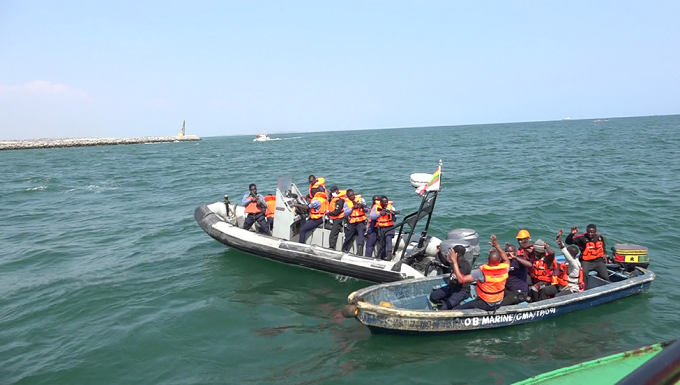Security agencies working within Ghana’s port enclave have undertaken an intensive exercise that was aimed at assessing the level coordination of the nation’s security apparatus as well as identify gaps to improve on towards an impenetrable port.
The interagency security exercise dubbed “dukadaya” was also to satisfy requirements of the International Ship and Port Facility Security Code (ISPS) which prescribes responsibilities for relevant stakeholders of the various ports across the globe.
The allied participating security institutions including the GPHA Security, Ghana Navy, the army, the Marine Police, and National Security, engaged in some simulation exercises such as stowaway detection and disembarkation and how to nullify improvised explosive devices (IED).
The team also worked on narcotic interceptions during rummaging activities by the K9 Team, diffusion of potential insurgencies in the port space etc.
Tema Port Security Manager, Col. William Kwabiah, explained that such activities are important for his outfit as they seek to identify certain weaknesses inherent in the security structures so as to give room for corrective measures.
“We have been able to identify some of the inter-agency gaps we need to bridge so I am very satisfied with the exercise,” he said.
He continued by explaining the choice of certain simulation exercises that did enough to mimic realistic scenarios which tested the effectiveness of the security personnel.
Chairman of the Port Facility Security Coordinating Committee and Harbour Master for the Tema Port, Capt. Francis
Kwesi Micah, expressed pleasure at the success of the exercise which enabled the allied security group know their capabilities in containing some of the situations.
He stressed the need for improved communication skills among the agencies.
“We importantly had to try show off our capabilities by containing the situation through our communication skills,” he said.
He said consistency in such exercises would continue to enhance the capabilities of the national security apparatus responsible for the protection of the highly vital national economic assets.
